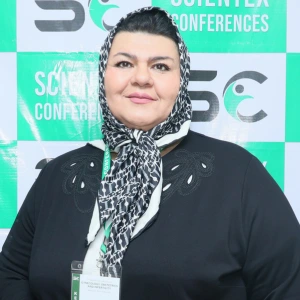
Flora Tajiki
Iran Medical Council, IranPresentation Title:
Effectiveness of Flora lifestyle modification on improving sperm morphology and achieving successful pregnancy
Abstract
A healthy embryo requires both high-quality oocytes (egg cells) and sperm. Semen analysis evaluates parameters such as sperm count, motility, viscosity, liquefaction, volume, and morphology. Sperm morphology refers to the shape and structure of spermatozoa and is an essential determinant of male fertility potential. Normal sperm typically have an oval head and a long tail, and abnormalities in shape can reduce fertilisation capacity.
Poor sperm morphology is frequently identified in cases of male infertility. The head’s shape is especially crucial as it impacts the sperm's ability to penetrate the oocyte. The sperm head also carries the genetic material (DNA), making morphology analysis vital in fertility assessments. The test focuses not only on head shape but also examines the midpiece and tail for any structural issues. Given its critical role in natural conception, improving sperm morphology through lifestyle changes may present a viable therapeutic pathway.
This study focused on the male partners of five women undergoing infertility treatment due to premature ovarian insufficiency. All male participants were over 40 years of age and had reported low sperm morphology despite taking medication for at least four months, with other semen parameters remaining normal.
Lifestyle interventions included sleep and dietary adjustments, cessation of alcohol and tobacco products, regular physical activity, stress-reduction techniques, body massage, and consumption of nutrient-rich nuts. After several months of adherence to these lifestyle changes, the women conceived naturally and delivered healthy babies.
To evaluate the effectiveness of lifestyle modifications in treating infertility associated with low sperm morphology. The results demonstrate that healthy lifestyle interventions can significantly improve sperm morphology and lead to successful pregnancies. Given their accessibility and affordability compared to assisted reproductive techniques, such modifications merit greater attention in clinical practice.
Biography
Flora Tajiki is a midwifery specialist who graduated in 1992. After addressing her own polycystic ovary syndrome (PCOS) through lifestyle changes, she began treating women with similar issues. In 2016, she shared her treatment successes online, attracting more patients with infertility challenges. By 2018, she successfully treated women with low ovarian reserves and premature menopause, many previously advised to pursue egg donation. Her non-hormonal, holistic approach, focusing on lifestyle changes, has helped many women conceive. In 2020, she began training over 700 midwives and doctors in her methods, both in Iran and internationally. She has treated more than 5,000 patients globally, including those from Germany, Spain, the UK, and Japan. Her work has been recognized at international infertility congresses, and she has conducted workshops at various universities and medical institutions. She is also the author of several books on pre-pregnancy and pregnancy care.


